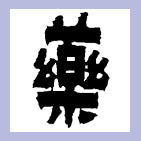Traditional Chinese Medicine (TCM) Approach to Coronary Heart Disease: Theoretical Research, Treatment Strategies, and Drug Recommendations
Introduction
Coronary heart disease (CHD), a leading cause of cardiovascular mortality, is addressed in Traditional Chinese Medicine (TCM) through a holistic framework that emphasizes balancing Qi, blood, and internal organs. TCM offers complementary therapies to modern medicine by targeting the root causes of CHD, such as Qi stagnation, blood stasis, and phlegm-dampness obstruction. This article explores TCM’s theoretical insights, treatment modalities, and a broader range of recommended medications for CHD.
Theoretical Research
In TCM, CHD is classified under "chest obstruction" (Xiong Bi) or "heart vessel stagnation." Its pathogenesis is linked to:
- Qi Stagnation and Blood Stasis: Emotional distress or physical strain disrupts Qi flow, leading to blood stasis in coronary vessels.
- Phlegm-Dampness Obstruction: Poor diet or weakened spleen function generates phlegm-dampness, blocking heart meridians.
- Yang Deficiency and Cold Coagulation: Weakened kidney or heart Yang allows cold pathogens to invade, constricting vessels.
- Qi-Yin Deficiency: Chronic illness depletes Qi and Yin, resulting in palpitations and fatigue.
Treatment Strategies
TCM employs a multi-pronged approach combining herbal medicine, acupuncture, and lifestyle adjustments:
-
Herbal Therapy
- Formula Selection: Tailored to syndrome differentiation (e.g., Blood Stasis, Phlegm-Dampness).
-
Key Herbs:
- Dan Shen (Salvia miltiorrhiza): Activates blood circulation.
- Hong Hua (Carthamus tinctorius): Enhances blood flow.
- Ren Shen (Panax ginseng): Tonifies Qi and strengthens the heart.
-
Acupuncture
-
Primary Points:
- Neiguan (PC6): Regulates heart Qi.
- Xinshu (BL15): Strengthens heart function.
- Zusanli (ST36): Boosts Qi and improves digestion.
-
Primary Points:
-
Lifestyle Modifications
- Diet: Avoid greasy/spicy foods; consume heart-nourishing foods (e.g., jujube).
- Exercise: Gentle practices like Tai Chi.
- Emotional Balance: Meditation or Qigong to manage stress.
Recommended TCM Medications
TCM offers a diverse array of medications for CHD. Below are 10 widely used options, categorized by efficacy and clinical application:
- Fufang Danshen Tablets (复方丹参片)
- Shexiang Baoxin Pill (麝香保心丸)
- Tongxinluo Capsule (通心络胶囊)
- Xuefu Zhuyu Capsule (血府逐瘀胶囊)
- Wenxin Keli (稳心颗粒)
-
Xinkeshu Capsule (心可舒胶囊)
- Ingredients: Dan Shen, Ge Gen, San Qi.
- Actions: Activates blood, lowers blood pressure.
- Indications: Hypertension-associated chest pain.
- Guanxin Suhe Wan (冠心苏合丸)
- Shensong Yangxin Capsule (参松养心胶囊)
- Qili Qiangxin Capsule (芪苈强心胶囊)
-
Buxinqi Oral Liquid (补心气口服液)
- Ingredients: Huang Qi, Ren Shen, Shi Chang Pu.
- Actions: Tonifies heart Qi, relieves pain.
- Indications: Fatigue, dizziness, heart pain due to Qi deficiency.
Conclusion
TCM provides a distinctive paradigm for managing CHD by addressing both symptoms and underlying imbalances. Integrative approaches combining TCM herbs, acupuncture, and Western medicine may enhance outcomes, though close monitoring by qualified practitioners is essential. Patients should consult healthcare providers before initiating TCM therapies to ensure safety and compatibility with conventional treatments.








